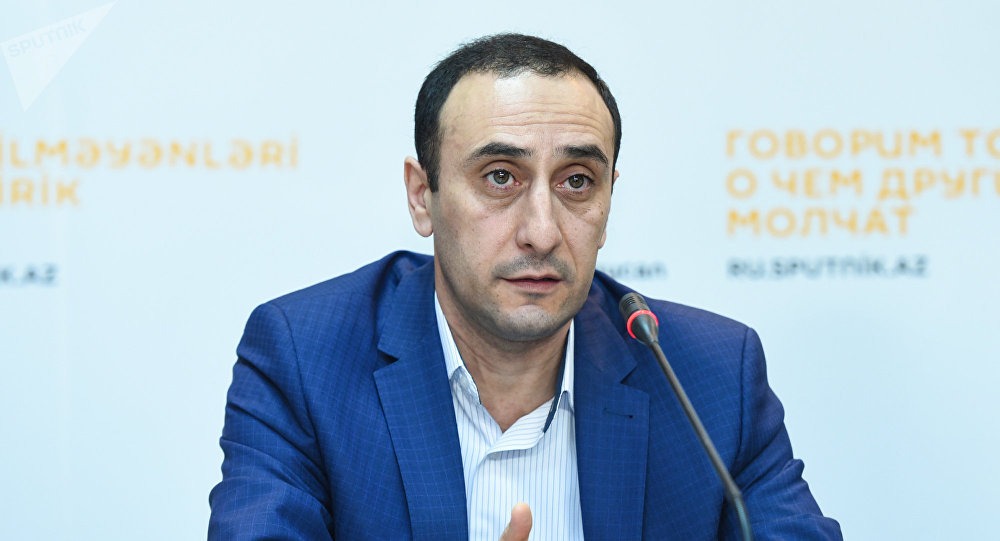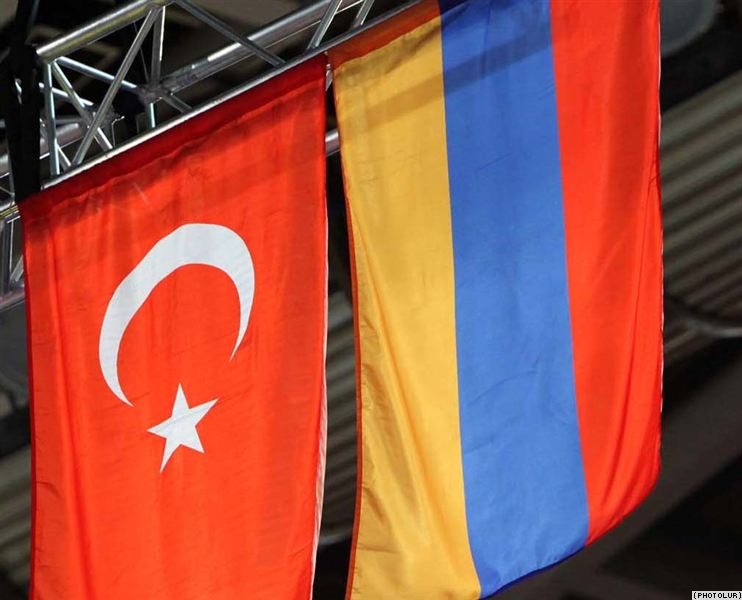Ülviye FİLİYEVA ERKEÇ
The Second Karabakh War created a new geopolitical status and cooperation chances in Southern Caucasia. After the war, Azerbaijani, Armenian, and Russian leaders came together many times and discussed developments on applying the signed agreements.

Director of the Center for the History of the Caucasus
In that sense, The International Asia Today will present you the views of historian Rizvan Huseynov, who is the head of the Center for Caucasian History, on developments of Turkey-Armenia and Armenia-Azerbaijan lines.
Mr. Rizvan, as you know, Azerbaijani, Russian, and Armenian leaders have meetings regularly. What kind of development is expected soon? How do you evaluate the results of trilateral meetings?
The Second Karabakh War created a new geopolitical reality in Southern Caucasia. The regular meetings held between Azerbaijani, Russian and Armenian leaders draw the framework for the newly emerging format. The ceasefire was signed on November 9, 2020. The agreement was made in Moscow on January 11, 2021. The meetings held in Sochi on November 26, 2021, showed a technical solution for opening Zangezur Corridor. In the mentioned meetings, different topics were discussed, which shows tripartite format is successful. As an intermediator, Russia has an essential role between Azerbaijan and Armenia.
How do you think Armenia would take steps to make Southern Caucasia a safe zone? Why is the Yerevan government taking it slow?
At first step, the Armenian Government assumed that the status quo would change. However, in 2021, the efforts taken in that sense failed. Armenia could not find support on Zangezur or the issue of the border from Russia and Iran. Besides, India, France, and the United States (US) did not support them enough. As a result, the Yerevan government understood that none of the articles would change in the agreement.
In a one-day conflict that took place on the Armenia-Azerbaijan border on November 16, 2021, Azerbaijan gained control over three strategic roads in the direction of Armenia, in the direction of the cities of Sisyan-Gorus-Gafan, and at the entrance to the Lachin Corridor. After that conflict, the Armenian Government accepted that they failed militarily and politically. That’s why we can say that Armenia would give up revisionist efforts in 2022; therefore, it could establish diplomatic relations. In contrast, Yerevan would be a destabilizing factor. Moreover, it is not rational for Armenia.
Lately, Armenia has been giving normalization messages to Turkey. How do you evaluate cooperation chances between Turkey, Armenia, and Azerbaijan?
It should be noted that Ankara is also giving positive messages in that sense. Turkey and Armenia mutually appointed representatives on normalization, which is correct. Ankara-Yerevan cooperation negotiations should immediately start.
Ankara is expressing that any cooperation with Yerevan will be discussed with Baku, and without the consent of Azerbaijan, none of the plans would be realized. It should be clearly explained that Azerbaijan and Turkey do not have trust issues on any issue. The cooperation of the two countries would contribute to the region.
Indeed, Turkey’s one of the most successes is the economic model. The economy, transportation, and transit transportation models implemented in relations with other countries are an area where Turkey creates successful projects. Examples of this are Turkey-Azerbaijan-Georgia cooperation, Baku-Tbilisi-Kars Railway, Baku-Tbilisi-Ceyhan Pipeline and other transit projects, and significant investments in the Georgian economy. As it is known, the role of Turkey and Azerbaijan is essential in the projects for the development of the Georgian economy. The same can happen with Armenia. This can contribute to the welfare of the Armenian people and the region’s people in general.
After Karabakh Issue was solved in military ways, is it possible for the Armenian and Azerbaijani people to live together? What kind of future are you expecting?
One of the most challenging issues on the subject is the issue of the coexistence of people. It can be stated that this process may begin after 5-10 years. Azerbaijani Turks and Armenians can live in villages or provinces close to each other. But I don’t think they can share the joint space, at least for now. If the cooperation format is applied, it may be possible to work together in the established joint industrial, factory, or agricultural facilities. Time will show that. Cooperation and trade are the most rational way to solve such problems. This issue needs to be approached very sensitively. Because, during the First and Second Karabakh Wars, both Azerbaijan and Armenia suffered many casualties, and both communities suffered significant wounds. However, the principle is not to live together in the first stage; It should be considered to conduct relations based on neighborliness and cooperation.
As you know, unless the people compromise, political diplomacy could not be successful permanently. In that sense, how do you evaluate the role of public diplomacy in establishing peace between the Armenian and Azerbaijani people? Do you think this method could prevent another conflict and serve regional peace?
In the peace model, public diplomacy is quite significant. The meetings between activists, historians, sociologists, and opinion leaders of ethnic groups should be held. After that, joint projects can be established. In the next step, the youngsters can come together. As a result, all the layers of the public can come together and establish relations. Here, objective experts and journalists from both sides are essential. These interviews should also be featured in the media to create a positive image. As you pointed out in the question, political diplomacy cannot be successful without public diplomacy because the main goal is for the two peoples to internalize living in peace. I hope this process will start in 2022.
An interview on our website is the personal opinion of the expert and may not reflect the institutional view of The International Asia Today.

